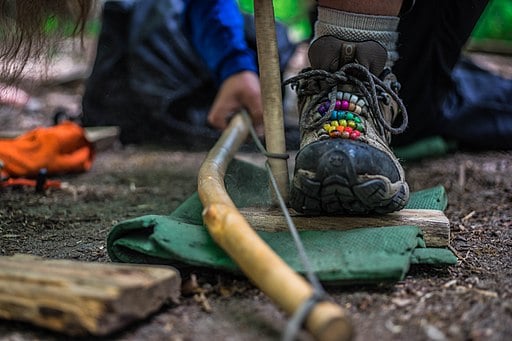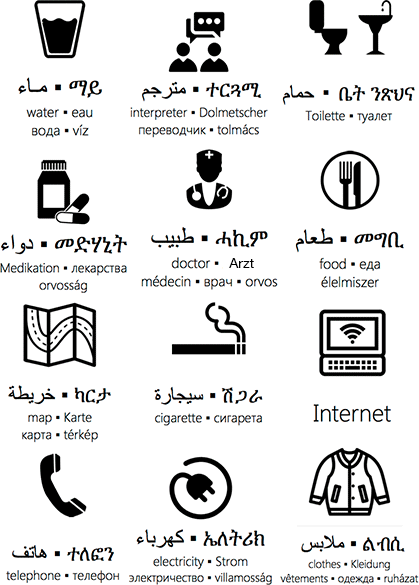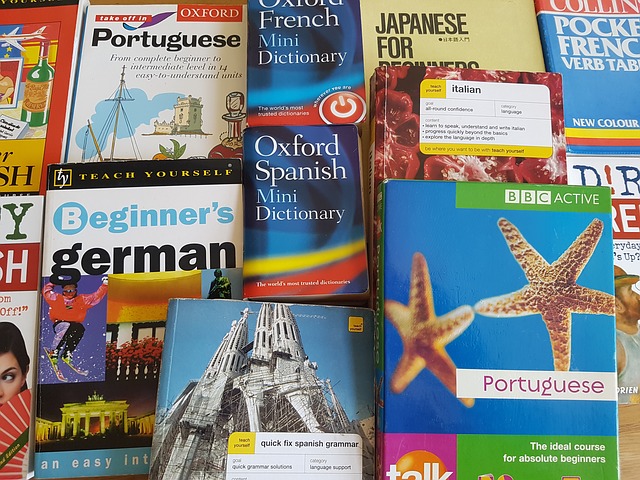Your Survival Guide to Learning Your Survival Language While Traveling
You’re a traveler. You live to take in new cultures and experience new surroundings. That’s great. So do we! After all, it’s one thing to spend 15 months reading everything you can consume on the history and customs of a place, but until you travel there and experience it first-hand, you can’t quite put it all together in your head. As varied as your travels may be, transitioning from trekking through the Himalayas to lounging poolside in Costa Rica, there are some things you should always be prepared to ask for. As a sort of survival guide to learning your survival language, here are some of the things we think you should be able to say in several languages.

Photo via Wikimedia
1. Hello, Good Day, Good Morning, Good Night
Let’s face it, courtesy goes a long way no matter to where your passport grants access. Greeting people on the street as well as those who you may be asking for help sets the tone for a pleasant interaction and may elicit a more friendly response.
2. Please, Thank you, Sorry, and You’re Welcome
Again, this goes back to basic courtesy. Although you may not be fluent in the language, you don’t want to appear rude. Even when you are saying that you don’t speak the language, saying your sorry and asking for help will set the right tone.

Photo via Wikimedia
3. Hospital
You just never know what might happen in any part of the world. It’s always essential to have a plan and formulating an outline for any emergency is of the utmost importance. The basics of asking where the hospital is in the native tongue is a critical part of the process!
4. Directions and Numbers
Once you’ve asked where the hospital is you need to be able to understand the directions you are given. How many blocks in which direction? Learn east, west, north, south and the numbers one through twenty for the basics. This will also be helpful when someone suggests a restaurant or event that you wish to attend.
5. Food and Drink
You can likely get by with pointing at the menu or the plate of the customer at the restaurant next to you, but being able to order a cerveza in the native language feels good. Try to learn some of the basics, even if it is food groups such as the word for fruit or beef. Definitely know how to ask for water.
6. How Much?
Unless you are backpacking self-sufficiently without encountering any merchants, you will likely need to know how much things cost. You should be able to ask how much it is and, once again, know the numbers one to twenty (as a minimum) so that you can translate the answer.
7. Where is the…?
Mostly importantly, this should be followed by bathroom, but might also be useful for hospital, post office, school, market, hotel, or taxi stand.
8. Can I have?
Whether ordering a meal, buying gas for the scooter, or requesting a room, this is phrase you will use frequently while you travel.
9. Yes and No
Once you understand the question, it’s important to be able to answer with the basic vocabulary of yes or no.

Photo via Pixabay
10. Slowly Please
When trying to communicate in another language with someone who speaks it fluently, you will often need to (repeatedly) ask them to slow down so you can understand. This is an important phrase in any new language you learn.
11. I don’t understand
There will be many things that you don’t understand. That’s okay. It will be a lot less frustrating if you can tell the person that you don’t understand. Conversely, learn how to say, “I understand” so that you can also let them know that you have the information you need.
12. Do you speak…?
Although it’s fun to order a beer or ask where the bathroom is while using the local dialect, sometimes communication breakdowns are just going to happen. Asking, “Do you speak (English) can resolve the issue. Even if they do not, they may be able to find someone who does, eliminating a lot of frustration for everyone.
Travel is fun and the more you able to interact with the locals the deeper the experience will be. You may not be able to learn the entire language before your next trip, but with focus you can at least have the basics covered. After all, we can’t have you offending the natives or accidentally starting a fight. We feel that takes away from the experience. You know, just a little.
Can you think of any other must-know phrases for successful travel?
